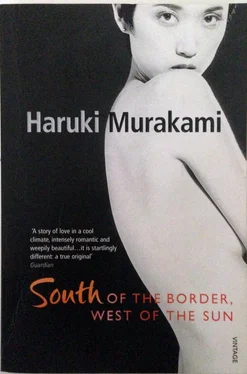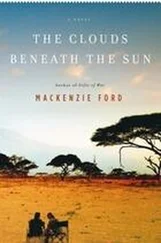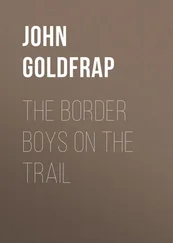Shimamoto extracted a Salem from her small purse. Before she could take out her lighter, I struck a match and lit her cigarette. I liked to light her cigarettes and watch her eyes narrow as she stared at the flickering flame.
“I haven’t worked a single day in my life,” she said.
“Not even once?”
“Not even once. Not even a part-time job. Labor is totally alien to me. That’s why I envy you. I’m always alone, reading books. And any thoughts that happen to occur to me have to do with spending money, not making it.” She stretched both arms out in front of me. On her right arm she wore two thin gold bracelets, on her left arm an expensive-looking gold watch. She kept her arms in front of me for a long while, as if they were displaying goods for sale. I took her right hand in mine and gazed for a time at the gold bracelets. I recalled her holding my hand when I was twelve. I could remember exactly how it felt And how it had thrilled me.
“I don’t know … maybe thinking about ways to spend money is best, after all,” I said. I let go of her hand and felt that I was about to drift away somewhere. “When you’re always scheming about ways to make money, it’s like a part of you is lost.”
“But you don’t know how empty it feels not to be able to create anything.”
“I’m sure you’ve created more things than you realize.”
“What sort of things?”
“Things you can’t see,” I replied. I examined my hands, resting on my knees.
She held her glass and looked at me for a long while. “You mean like feelings?”
“Right,” I said. “Everything disappears someday. Like this bar–it won’t go on forever. People’s tastes change, and a minor fluctuation in the economy is all it’d take for it to go under. I’ve seen it happen; it doesn’t take much. Things that have form will all disappear. But certain feelings stay with us forever.”
“But you know, Hajime, some feelings cause us pain because they remain. Don’t you think so?”
The tenor saxophonist came over to thank me for the whiskey. I complimented him on his performance.
“Jazz musicians these days are so polite,” I explained to Shimamoto. “When I was in college, that wasn’t the case. They all took drugs, and at least half of them were deadbeats. But sometimes you could hear these performances that would blow you away. I was always listening to jazz at the jazz clubs in Shinjuku. Always looking to be blown away.”
“You like those kinds of people, don’t you.”
“Must be,” I said. “People want to be bowled over by something special. Nine times out of ten you might strike out but that tenth time, that peak experience, is what people want. That’s what can move the world. That’s art.”
I looked again at my hands, resting on my knees. Then I looked up at her. She was waiting for me to continue.
“Anyway, things are different now. I’m the manager of a bar, and my job’s to invest capital and show a profit. I’m not an artist or someone about to create anything. I’m not a patron of the arts. Like it or not, this isn’t the place to look for art. And for the manager, it’s a lot easier to have a neatly turned out, polite group than a herd of Charlie Parkers!”
She ordered another cocktail. And lit another cigarette. We were silent for a long while. She seemed lost in thought. I listened to the bassist play a long solo in “Embraceable You.” The pianist added the occasional accompanying chord, while the drummer wiped away his sweat and had a drink. A regular at the bar came up to me, and we chatted for a while.
“Hajime,” Shimamoto said a long time later. “Do you know any good rivers? A pretty river in a valley, not too big, one that flows fairly swiftly right into the sea?”
Taken by surprise, I looked at her. “A river?” What was she talking about? Her face was utterly expressionless. She was quiet, as if gazing at some faraway landscape. Maybe it was me who was far away—far from her world, at least with an unimaginable distance separating us. The thought made me sad. There was something in her eyes that called up sadness.
“What’s with this river all of a sudden?” I asked.
“It just suddenly occurred to me,” she answered. “Do you know any river like that?”
When I was a student, I traveled around the country quite a bit lugging a sleeping bag. So I’d seen quite a few Japanese rivers. But I couldn’t come up with the kind of river she described.
“I think there might be a river like that on the Japan Sea coast,” I said after a great deal of thought. “I don’t remember what it’s called. But I’m sure it’s in Ishikawa Prefecture. It wouldn’t be hard to find. It’s probably the closest to what you’re after.”
I recalled that river clearly. I went there on fall break when I was a sophomore or a junior in college. The fall foliage was beautiful, the surrounding mountains looking as though they were dyed in blood. The mountains ran down to the sea, the rush of the water was gorgeous, and sometimes you could hear the cry of deer in the forest. The fish I ate were out of this world.
“Do you think you could take me there?” Shimamoto asked.
“It’s all the way over in Ishikawa,” I said in a dry voice. “Enoshima I could see, but we’d have to fly, then drive for at least an hour. And stay overnight. I’m sure you understand that’s something I can’t do at the moment.”
Shimamoto shifted slowly on her stool and turned to face me. “Hajime, I know I shouldn’t be asking this favor of you. I know that. Believe me, I realize it’s a burden to you. But there’s no one else I can ask. I have to go there, and I don’t want to go alone.”
I looked into her eyes. Her eyes were like a deep spring in the shade of cliffs, which no breeze could ever reach. Nothing moved there, everything was still. Look closely, and you could just begin to make out the scene reflected in the water’s surface.
“Forgive me.” She smiled, as if all the strength had left her. “Please don’t think I came here just to ask you that I wanted only to see you and talk. I didn’t plan to bring this up.”
I made a quick mental calculation of the time. “If we left really early in the morning and did a round trip by plane, we should be able to make it back by not too late at night. Of course, it depends on how much time we spend there.”
“I don’t think it’ll take too long,” she said. “Can you really spare the time? The time to fly over there and back with me?”
I thought a bit. “I think so. I can’t say anything definitely yet But I can probably make the time. Call me here tomorrow night, all right? I’ll be here at this time. I’ll figure out our plan by then. What’s your schedule?”
“I don’t have any schedule. Any time that’s fine with you is fine with me.”
I nodded.
“I’m really sorry,” she said. “Maybe I shouldn’t have met you again, after all. I know I’ll only end up ruining everything.”
She left just a little before eleven. I held an umbrella over her and flagged down a cab. The rain was still falling.
“Goodbye. And thank you,” she said.
“Goodbye,” I said.
I went back into the bar and returned to the same seat at the counter. Her cocktail glass was still there. As was the ashtray, with several crushed-out Salems. I didn’t have the waiter take them away. For the longest time, I gazed at the faint color of lipstick on the glass and on the cigarettes.
Yukiko was waiting up for me when I got home. She’d thrown a cardigan over her pajamas and was watching a video of Lawrence of Arabia . The scene where Lawrence, after all sorts of trials and tribulations, has finally made it across the desert and reached the Suez Canal. She’d already seen the film three times. It’s a great film, she told me. I can watch it over and over. I sat down next to her, and had some wine as we watched the rest of the movie.
Читать дальше












